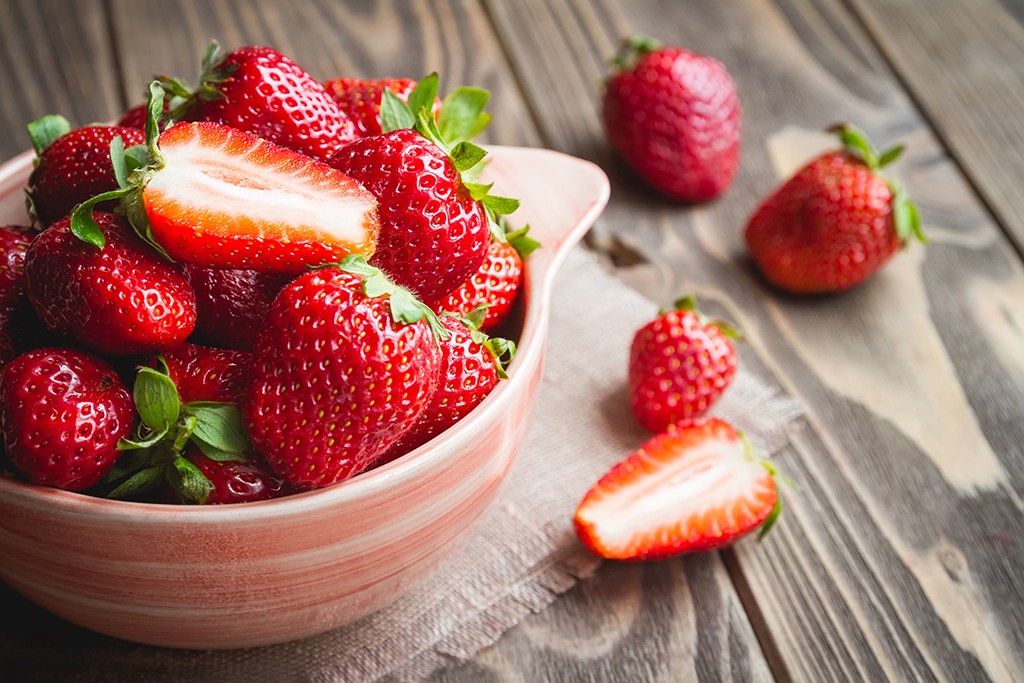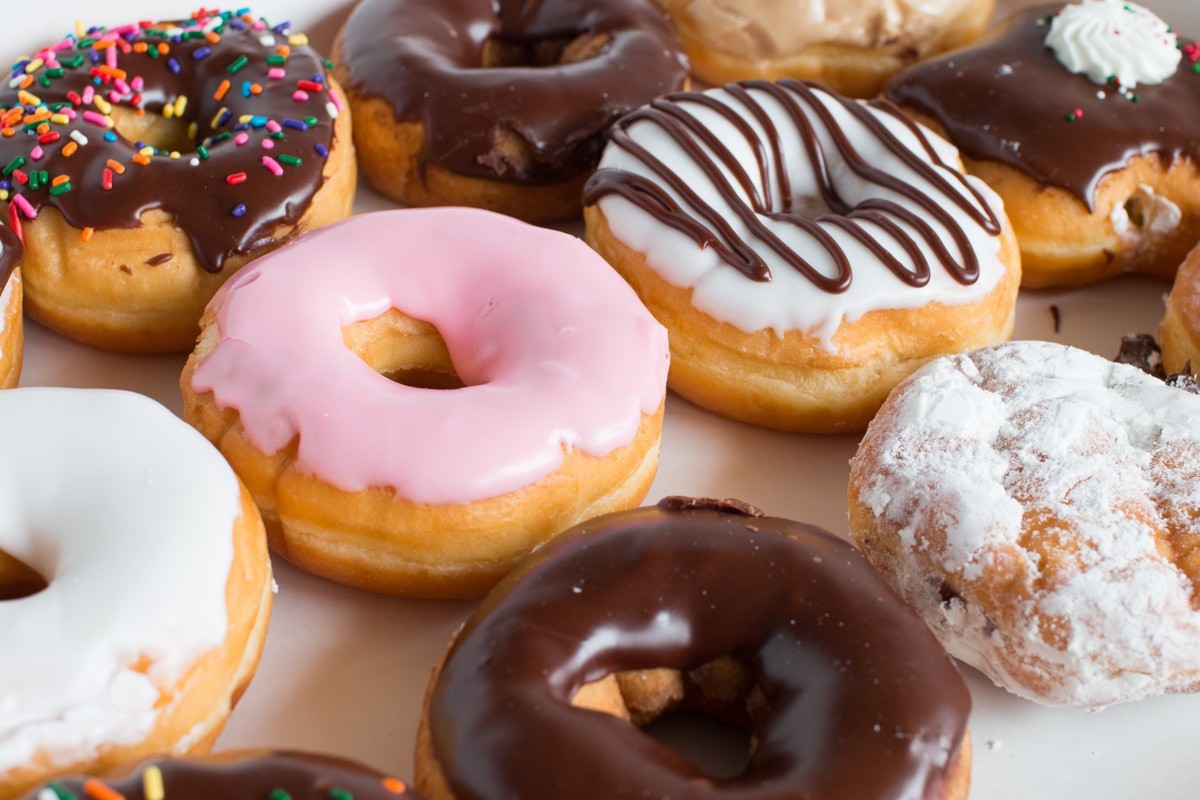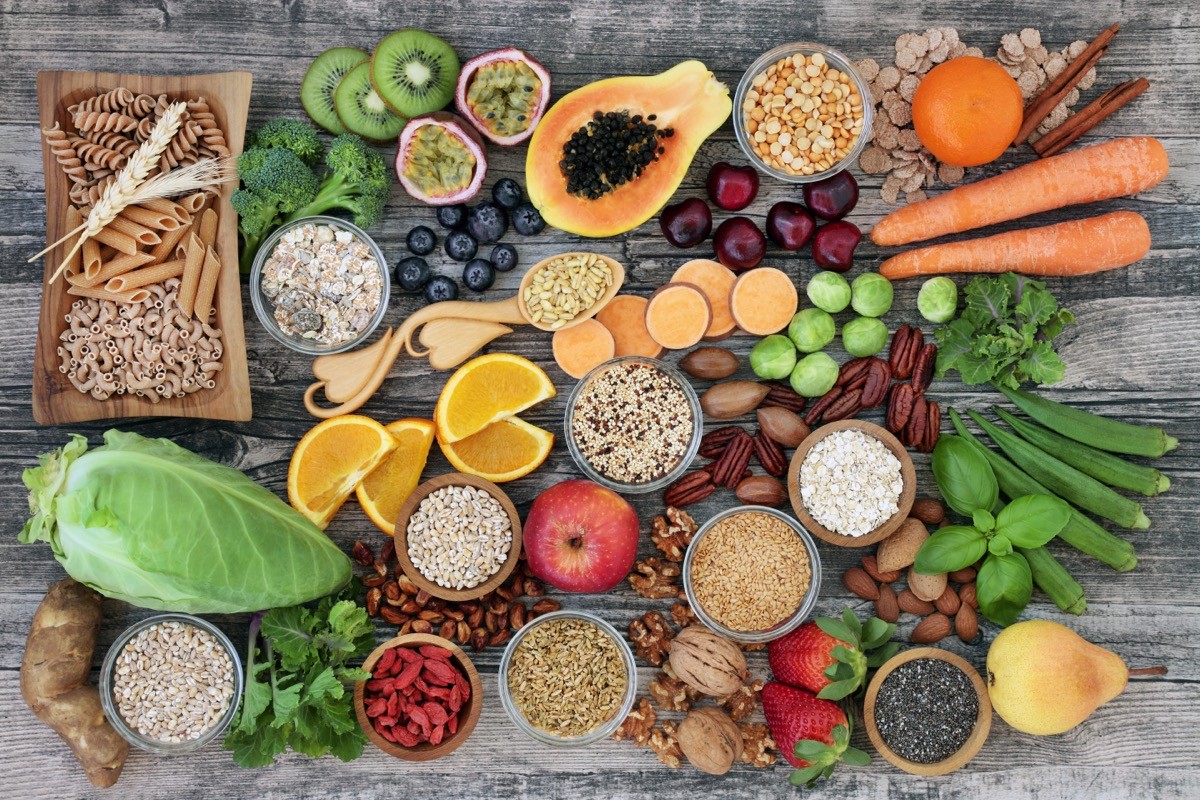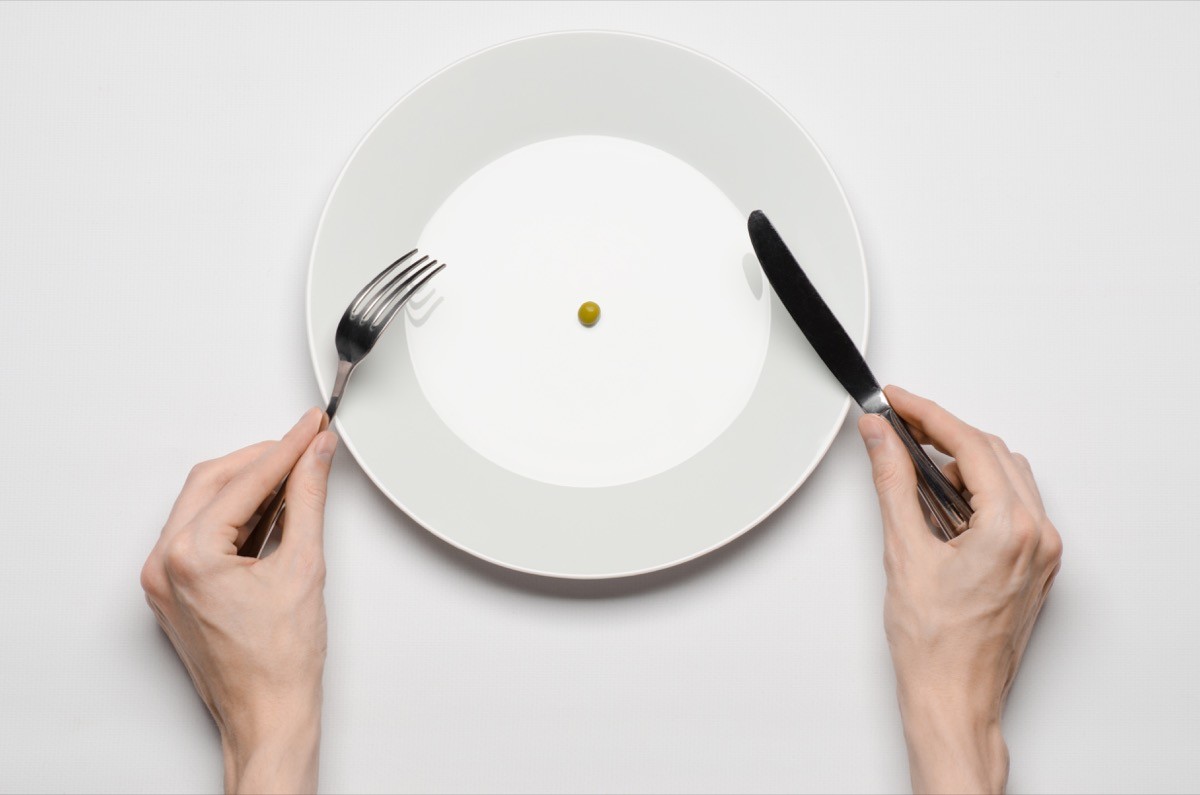If You’re Over 40, Stop Making These Common Diet Mistakes ASAP

Dietary needs change after 40, and what you eat can significantly impact your health, weight, and wellbeing. “Both your nutritional needs (food and water) and your metabolism (how fast your body converts food to energy) change at this age,” says Family Doctor. “Your metabolism gets slower. Women lose about half a pound of muscle per year starting around the age of 40. That makes losing weight even more difficult. Some of these changes women experience are due to decreased hormones, reduced activity level, and medical conditions.”
RELATED: 40 Things You Should Never Change About Yourself After 40.
Not Enough Protein

Eating good quality protein is crucial over 40. “Eating more protein is a total game changer for our clients,” celebrity trainer Claire Davis tells Red magazine. “Try to eat good quality protein — such as turkey, white fish, nuts and seeds. Protein triggers leptin and has been shown to create a significant decrease in the amount of calories consumed over the course of a day and therefore less belly fat.”
Not Eating Enough Fiber

Fiber is important for satiety and keeping belly fat at bay. “After 40, your hormone levels (estrogen) drop,” according to Family Doctor. “This causes your insulin (hormone that helps your body use sugar) rise. Your thyroid levels go down. This combination makes you hungrier. You end up eating more and burning fewer calories. Much of the weight gain occurs around your belly. Eat more foods with fiber (berries, whole grains, nuts) to fill you up and help you eat less. Aim for 25 grams of fiber each day after the age of 40. Other ways to increase your metabolism include:
Too Much Sugar

Too much sugar is not great for us at any age, but it’s particularly problematic over 40. “As we age we become more insulin resistant, meaning we’re unable to process the sugar in our blood as effectively,” Davis says. “When you have too much sugar your insulin will spike and then slump you back down — leaving you on a never ending torturous cycle of highs and lows where you’ll crave more and more sugar. Excess sugar is linked to holding onto belly fat, depression, lowered immune system and many life threatening diseases. Looking for hidden sugars in food (they’re everywhere) is key, along with reducing alcohol consumption.”
Not Enough Whole Foods

Eating a diet rich in whole foods, fruits, and vegetables is important for overall health and healthy aging. “Women need protein (meat, fish, dairy, beans, and nuts), carbohydrates (whole grains), fats (healthy oils), vitamins, minerals, and water,” says Family Doctor. “These foods have been linked to some disease prevention, such as osteoporosis, high blood pressure, heart disease, diabetes, and certain cancers.”
RELATED: Secret to Health 40+: Scientists Reveal.
Crash Dieting

Crash dieting is terrible for your health and for lean muscle mass. “One of the biggest nutrition mistakes that I see is women going on extremely low-calorie diets,” Courtney Delpra, a dietitian at the Cleveland Clinic, tells HuffPost. “When your estrogen levels start to dip, as they do in your mid-40s, this also decreases muscle mass. If you respond by skipping meals, that can have a negative effect. Think of your metabolism as a bonfire. If you don’t put enough logs on your ‘fire,’ it’ll dwindle. Undereating, chronically, can affect how you metabolize your foods, so it’s key to get enough calories with the right macronutrients.”
Eating Carbs Late at Night

Eating carbs late at night can impact sleep, which is necessary for health. “This is bad news for a few reasons,” Davis says. “Carbs are our primary energy source so they’re good, but they need to be front loaded in the day, so for breakfast and lunch. If you eat them late at night, the energy doesn’t get used up and this is then more likely to get stored as fat. Eating really late means you’re in with even less of a chance of using carbs up. And what’s more if you eat late, your body temperature will raise just before bed as it digest the food. This will more than likely disturb your sleep.”
Not Being Flexible

Don’t become obsessive and restrictive about diet, experts warn. “Women need to find a way to enjoy healthy eating that fits their life, without guilt,” registered dietitian and licensed naturopathic doctor Jennifer Salib Huber tells HuffPost. “It needs to be flexible and forgiving, and not based on rules designed to control what you can and can’t eat. So give yourself permission to lower the bar and make a most-of-the-time ‘good enough’ your standard, instead of striving for perfection every time.”